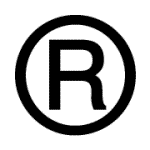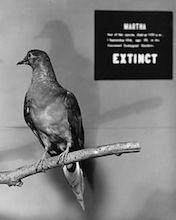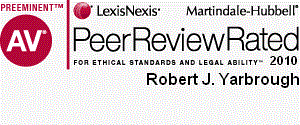Newsletter Issue 89 - July 2016
In this issue:
Copyright in 'Thank You'
Hashtags
Can ordering a prototype kill your patent?
Ask Dr. Copyright ...
My Mom always taught me to be extra-polite. Growing up in the
South, I learned to call my elders "Ma'am" and "Sir", and always to
say "Please" and "Thank you". I guess that the 2Big2Fail crowd was
raised differently. I just heard that CitiGroup thinks that it owns
"Thank You" and that nobody else is ever allowed to say that. Please
tell me that this is untrue.
Gracias (cause, you know, I can't say that other phrase...)
Signed,
Miss Manners
Dear Ms. Manners (the "Doc" is a modern gentleman, and since we're
busy shattering glass ceilings all over...):
CitiGroup has brought a federal law suit against AT&T. According to
the court filing:
For many years, Citigroup has used trademarks consisting of and/or containing the term THANKYOU, including THANKYOU, CITI THANKYOU, CITIBUSINESS THANKYOU. THANKYOU FROM CITI, and THANKYOU YOUR WAY, in connection with a variety of customer loyalty, reward, incentive, and redemption programs (collectively, the "THANKYOU Marks"). As a result of Citigroup's longstanding, extensive, and widespread use, marketing, and promotion of its THANKYOU Marks and services, Citigroup's THANKYOU Marks are widely recognized by the general consuming public as a designation of source for Citigroup's high quality financial services and customer loyalty, reward, incentive, and redemption programs.
So, in other words, Citi owns "THANKYOU".
Here's proof. Done, and done. Right?
What did AT&T (that cuddly phone company and telecommunications
conglomerate that used to be AT&T, and then was a bunch of "Baby
Bells" and then not-so-much, and then Cingular (remember them) and
now AT&T (got that?) do, exactly? We'll let Citi tell it:
Despite actual knowledge of Citigroup's substantial use of and exclusive rights in the THANKYOU Marks, Citigroup's use of the marks in connection with AT&T co-branded credit cards, and Citigroup's concerns regarding AT&T's proposed trademarks, AT&T launched a customer loyalty program under the trademarks "thanks" and "AT&T thanks" on or about June 2, 2016. AT&T's use of the "thanks" and "AT&T thanks" trademarks is likely to cause consumer confusion and constitutes trademark infringement, false designation of origin, and unfair competition in violation of Citigroup's rights. Citigroup therefore seeks to enjoin AT&T's infringing conduct and to recover damages based on the injury AT&T's conduct has caused to Citigroup as well as AT&T's unjust enrichment.
Got that? AT&T said, "thanks". Are you confused? The Doc isn't.
Of course, not to be outdone, AT&T has applied to the USPTO to
register "AT&T THANKS". How will this all turn out? By making a lot
of lawyers a ton of money, of course! As the Doc's son, presently in
law school, recently opined about a similar case, "Or in other
words, a win!" (The Doc is very proud that his son has learned the
most important lesson that they don't teach in law school.)
The Doc hopes that this clears up any confusion that you may have
had. If you're confused about trademarks, copyrights, patents, trade
secrets, nondisclosure agreements, noncompete agreements, or any
other legal issues, ask the attorneys at LW&H. They're good at
clearing up any confusion and also helping their clients to steer
clear of disputes.
Until next month...
The "Doc"
#copyright; #trademark; #patents; #ip.

Originating in Twitter as a means of designating keyword search terms, the # (hashtag) has become a ubiquitous symbol of the social media age. As the political season heats up, tweeting has gone wild with political candidates and their supporters exchange 140 character barbs. This hyperactivity has spilled over to print and digital media in which tweets along with hash tagged words, are freely quoted as news. Yet, many older folks don't have a clue as to what hashtags are and what they do. Here's a very brief explanation courtesy of Wikipedia:
A hashtag is a type of label or metadata tag used on social network and microblogging services which makes it easier for users to find messages with a specific theme or content. Users create and use hashtags by placing the hash character (or pound sign) # in front of a word or unspaced phrase, either in the main text of a message or at the end. Searching for that hashtag will then present each message that has been tagged with it. A hashtag archive is consequently collected into a single stream under the same hashtag.
The question of whether you can register a hashtag as a trademark - as strange as it seems - has been asked and answered. Yes and why not! A recent search of the U.S. Patent and Trademark Office trademark database revealed that at least 173 hashtag trademarks have been registered or are in the application process. The Trademark Manual of Examining Procedure even has a section devoted to hashtag trademarks. Here are the important points for consideration:
A mark consisting of or containing the hash
symbol (#) or the term HASHTAG is registrable only if it functions
as a trademark, that is, it identifies the source of the owner's
goods and services;
The determination of whether a mark is a "hashtag mark" is made on a
case-by-case basis. The use of a hashtag doesn't necessarily mean
that it is a hashtag mark. For example, #29 means number 29; it's
not a hashtag;
Generally, the hash symbol and the wording HASHTAG do not provide
any source-indicating function they merely "facilitate
categorization and searching";
Simply adding the word HASHTAG or the hash symbol (#) to an
otherwise unregistrable mark will not render it registrable. If the
hashtag mark is merely descriptive or generic for the goods or
services, the entire mark will be refused as merely descriptive or
generic.
The applicant may have to disclaim the hashtag term where it is separable from other registrable matter.
Hashtag marks have also received recent publicity. The U.S.
Olympic Committee (USOC) has reportedly contacted certain companies
sponsoring athletes that do not have a commercial relationship with
the committee, warning them against infringing its trademarks.
According to
one source, in an effort to protect brand sponsors, the chief
marketing officer of the USOC wrote that "Commercial entities may
not post about the trials or games on their corporate social media
accounts.... This restriction includes the use of USOC's trademarks
and hashtags such as #Rio2016 or #TeamUSA." The letter also
reportedly prohibited companies -- not news organizations -- from
mentioning results or reposting anything from the official Rio
Olympics Twitter account. Is this enforceable? It's questionable and
may boil down to a "fair use" analysis, a topic we have covered in a
previous post. Sporting organizations typically over reach the
law in prohibiting dissemination of information about sporting
events, which is
another topic we've written about.
Have a question about how your organization uses sports-related
information, contact the lawyers at LWH. W''d love to help.
Can Ordering a Prototype Kill Your Patent Rights?
Before an inventor will build 10,000 units of a new invention, he
or she will first build a prototype - or many prototypes - to make
sure that the invention works as it should. For many inventions, the
inventor does not have the resources to build the prototype and will
farm out prototype production to a manufacturer. A question arises
when the inventor orders the prototype prior to filing a patent
application: is the purchase of the prototype from the manufacturer
a 'sale' of the invention? If so, then the purchase of the prototype
can terminate the inventor's patent rights.
The patent statute includes several events that can terminate patent
rights. In addition to placing the invention 'on sale,' those events
include public use of the invention, describing the invention in a
printed publication, or making the invention 'otherwise available to
the public,' all prior to filing a patent application. These laws
changed recently and no courts have reviewed the new versions of the
law; nonetheless, the older law is similar and court decisions under
the older law still are useful.
The Supreme Court considered whether an invention is 'on sale' in
1998 in
Pfaff v Wells Electronics. The Court concluded that a
transaction was a 'sale' for purposes of terminating patent rights
if (a) the invention was the subject of a 'commercial offer for
sale' and (2) the invention was ready for patenting. The Federal
Circuit Court considered the 'on sale' issue in
Medco v
Hospira, decided July 11, 2016. The court applied the older law
and the Supreme Court's Pfaff decision and concluded:
...we first clarify that the mere sale of manufacturing services by a contract manufacturer to an inventor to create embodiments of a patented product for the inventor does not constitute a "commercial sale" of the invention.
In other words, the contract manufacturer is selling
manufacturing services to the inventor and is not selling the
invention. We believe that Medco v Hospira will apply equally to the
new law and that an inventor does not jeopardize his or her patent
rights by ordering a prototype from a contract manufacturer.
The Medco v Hospira decision is good news for inventors. To make
absolutely sure that an order for a prototype is treated as a
service contract rather than a sale of a product, we recommend that
the inventor's contract with the manufacturer specify that the
contract is for manufacturing services.

